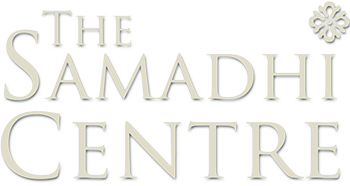Ayurveda can be used to explain the complexities of not only our health (this includes physical, mental and emotional health) but also the world around us and how we interact with that world. According to Ayurveda every person has an inherent and unique constitution, our prakriti. By understanding our own personal basic nature in this way, it can contribute to a nurturing attitude towards ourselves and the world around us, giving us insight and wisdom into maintaining our own health and that of the world around us. One of the fundamental principles is that to move away from our unique constitution creates health imbalances. These early signs of imbalance serve us and if addressed we can move very swiftly back to balance. If these early signs are ignored and we move further out of balance, they can manifest as disease.
Ether, earth, fire, water and air, the first materials of life are the basis of the Vedic sciences. Existing in the body of all living organisms, the 5 basic elements congregate in a certain pattern. These are known as the doshas. The proportion of the doshas in you is known as your prakriti. Your prakriti is your fundamental constitution, your most balanced state
All three doshas, or biological humours are present in varying degrees in everyone, but one or two usually predominate. A Vata person is characterized as unpredictable, enthusiastic, impulsive, and imaginative. Physically, Vatas are slender, have prominent features, and cool, dry skin. In contrast, the Pitta type of personality is predictable, intelligent, passionate, and articulate with a medium build. A Kapha personality is characterized by a heavyset body type and is loving, compassionate, affectionate, tolerant and forgiving in nature.
When these doshas go out of balance, then imbalance results. Vikriti is the present unbalanced state of the dosha which must be addressed. The purpose of all Ayurvedic treatment is to balance one’s Vikriti so the doshas are in harmony. Five factors that cause aggravation are: diet, lifestyle, emotions, exercise (too much, too little, or the wrong kind), and external influences of the seasons, weather, or trauma.
Vitiated Vata can result in hyperactivity, restlessness, anxiety, insecurity, fear, doubt, nervousness, insomnia, dizziness or ungroundedness. Physical manifestations are constipation, bloating, abdominal distension, gases, dehydration and emaciation, to name a few. When Pitta is disturbed, it manifests as anger, rage, irritability, frustration, impatience, jealousy, violence, and being critical or judgmental. Physically, Pitta can cause diarrhoea, nausea, acid regurgitation, skin disturbances such as hives, rash, increased perspiration, bleeding tendencies, inflammation, infection, and increased body heat. Disturbed Kapha Dosha is revealed through attachment, greed, depression and trouble letting go. It results in cold, congestion, weight gain, heaviness, shortness of breath, water retention, edema, and solidification of tumours, fibroids and lumps.
Ayurvedic treatment entails a personalised approach to balancing the doshas through diet, lifestyle and herbal medicine that is tailored to each individual. By teaching the individual how to manage diet and lifestyle and the properties of their dosha, it takes a preventative approach instead of waiting to deal with illness after it has already manifested. This may involve exercise, yoga, pranayama, meditation, dietary changes, fasting, oilation through massage, sweat baths, nasal medications and herbal tonics.
The therapeutic effects of botanical medicines or herbs has been vastly undervalued in the West despite its continuous use over the centuries in the East. Ayurveda has a rich pharmacy of hundreds of herbs that work in harmony with the body’s innate intelligence. They are natural substances that can be taken long-term without side-effects.
True joy, happiness and beauty come from within when we take the time to be ourselves, to discover who we are.
